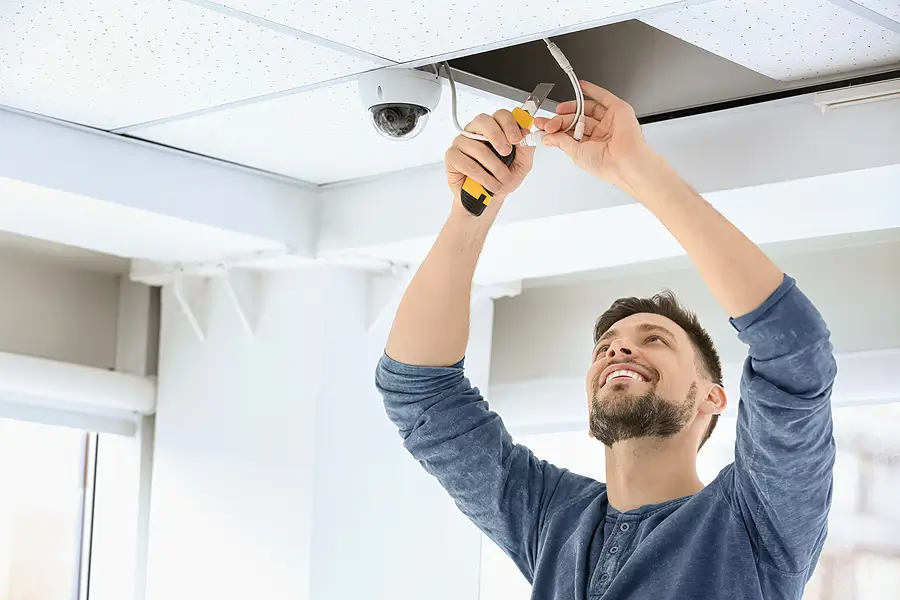When it comes to property maintenance, ensuring timely, efficient, and cost-effective maintenance is important to safeguard your investment. Two common approaches are in-house maintenance and outsourcing maintenance to external service providers. But which method works best for your situation?
Understanding Rental Property Maintenance
Rental property maintenance is a cornerstone of managing a successful investment property. These are regular and timely repairs to ensure the property remains habitable, safe, and appealing to tenants. Effective rental property maintenance not only enhances tenant satisfaction but also plays an important role in increasing rental income and property value.
In-House Rental Property Maintenance: The Pros and Cons
Pros:
Faster Response Times: One of the main advantages of in-house maintenance is the ability to respond quickly to maintenance issues.
Control Over Work Quality: With an in-house team, you maintain full control over the quality of repairs.
Cost Efficiency for Larger Portfolios: If you have multiple rental properties, in-house maintenance can be more cost-effective. Instead of constantly hiring external service providers for every small job, your team can handle routine repairs, reducing overall costs.
Cons:
Higher Overhead Costs: While in-house maintenance offers benefits, it can come with high overhead costs. You’ll need to cover salaries, equipment, and even benefits for your staff.
Limited Specialized Expertise: An in-house team may not have the specialized expertise required for certain repairs, such as plumbing or electrical work. This means you might still need to rely on outsourced maintenance for rental property repair, which can drive up costs.
Managing Staff: Keeping up with an in-house team involves more than just repairs, you’ll need to manage staff, their schedules, and the equipment they use.
Third-Party Rental Property Maintenance: The Pros and Cons
Pros:
Access to Specialized Expertise: Outsourcing maintenance to external service providers gives you access to contractors with specialized expertise in areas like plumbing, electrical, or HVAC. Adhering to rental property maintenance as a legal and practical obligation ensures that properties remain habitable and meet health standards.
Flexibility and Lower Upfront Costs: When outsourcing maintenance, you only pay for the services you need.
No Overhead: By using external service providers, you avoid the overhead costs associated with maintaining an in-house team. No need to worry about salaries, benefits, or purchasing equipment.
Cons:
Slower Response Times: With outsourced maintenance, contractors might not be immediately available to address urgent issues, which can lead to tenant dissatisfaction.
Less Control Over Quality: When you rely on external service providers, you have less direct control over the quality of work. Ensuring consistent, high-quality maintenance can be a challenge if the contractor does not meet your standards.
Higher Long-Term Costs: While outsourcing maintenance is flexible, the costs can add up if you have frequent repair needs. For larger portfolios, relying entirely on outsourced maintenance can impact your cash flow.
Cost Considerations for Rental Property Maintenance
Here are some key cost considerations to keep in mind:
Yearly Maintenance Costs: This budget should cover routine inspections, repairs, and replacements of appliances and fixtures, ensuring the property remains in top condition.
Emergency Repairs: Unexpected repairs can be a significant financial burden. Consider setting aside a portion of your rental property income specifically for emergency repairs.
Preventative Maintenance: Regular tasks such as cleaning gutters, inspecting the roof for damage, and trimming trees and shrubs help prevent more extensive and expensive repairs down the line.
Hiring a Professional Property Manager: A professional property manager can be invaluable in reducing maintenance costs. Here at Envy, we can identify potential issues before they escalate.
Which Option Is Best for Your Property Managers?
Deciding between in-house maintenance and outsourced maintenance depends on the size and complexity of your rental property. If you have a large portfolio, an in-house team may be more efficient, offering greater control over repairs, costs, and response times. On the other hand, if your property requires specialized skills or you have fewer maintenance needs, outsourced maintenance from external service providers may be the better option.
Interested in learning more about how we can help with your rental properties? Contact us today to explore how we can simplify your property management experience.


